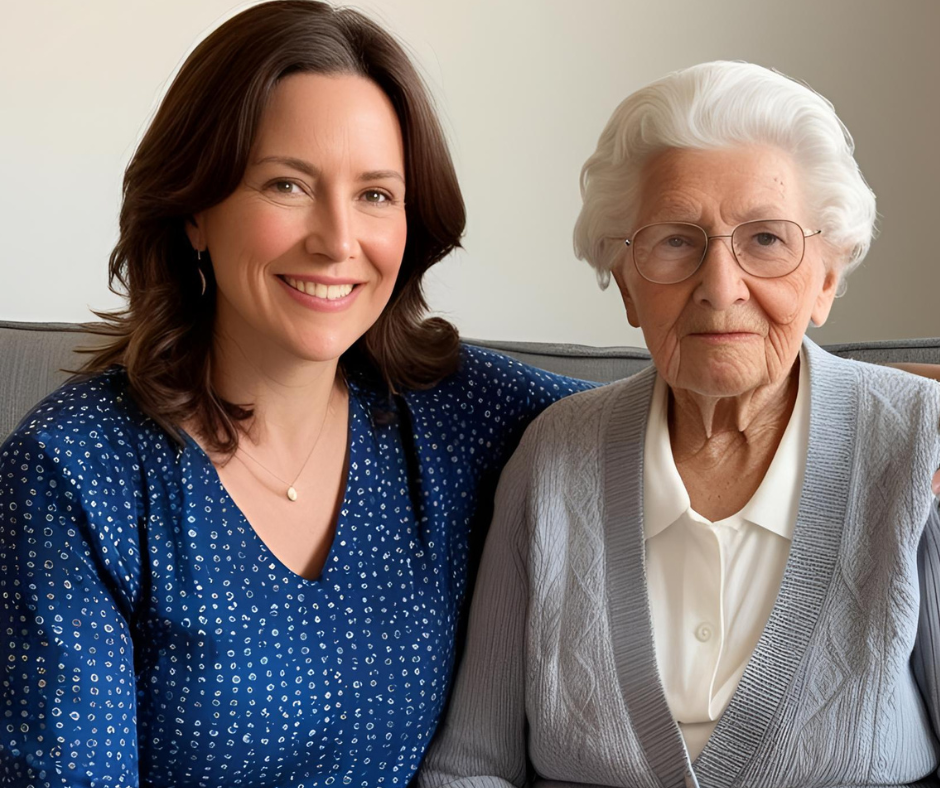Latest News
Latest News

Breaking Down Ageist Language: How Words Shape Our Views of the Elderly
October 15, 2024
When was the last time you heard someone joke about being over the hill? Or perhaps you’ve come across someone dismissing an older adult as past their prime? Maybe even you’ve caught yourself using terms like old-timer or senile without a second thought. It’s not just harmless banter. The words we use to describe older adults carry weight, and they shape how we, as a society, view ageing and the elderly.
In Australia, where our population is steadily ageing, how we talk about older people can have a profound societal impact. And here’s the kicker: this isn’t just a problem for old people—it’s something that will affect us all, sooner or later. The language we use today will shape the world we live in as we age.
So, let’s take a deep dive into ageist language and explore why it matters, how it affects society, and—most importantly—what we can do to change the narrative.
What is Ageist Language?
Before we can tackle ageism, we need to understand what it is and where it hides in our everyday conversations. Ageist language is any speech that reinforces negative stereotypes or biases about ageing or older adults.
Common Examples of Ageist Phrases:
– Over the hill – Implies that after a certain age, it’s all downhill from here.
– Old coot – Reduces an older adult to a quirky or outdated caricature.
– Having a senior moment – Suggests that forgetfulness is exclusive to older adults.
– You’re too old for that – Implies that certain activities, dreams, or goals have an age limit.
Subtle Ageism
Sometimes, even well-meaning language can carry connotations that reduce the dignity of older adults. Ever called someone’s grandma cute or said that an elderly person is so sweet? While you might think you’re being kind, it can come across as patronising. Older adults are people, not children, and using infantilising language robs them of their experience and identity.
The Societal Impact of Ageist Language
Words aren’t just words. The language we use has real-life consequences for older adults and for society as a whole. Ageist language reinforces harmful stereotypes that paint older adults as frail, forgetful, and incapable of contributing meaningfully to society. This kind of thinking affects everything from personal relationships to public policy.
- Shaping Perceptions
Ageist language makes it easier to view older adults as others—people who are no longer relevant to the fast-paced, tech-driven world. This creates a divide between generations and diminishes the value of wisdom, experience, and resilience that older adults bring to the table.
- Impact on Older Adults
When you hear negative language about yourself on repeat, you start to believe it. Studies show that exposure to ageist stereotypes can affect mental health and physical wellbeing. Older adults subjected to ageism are more likely to experience:
– Feelings of isolation and invisibility
– Low self-esteem and self-worth
– Increased stress and anxiety about ageing
– Depression and withdrawal from social activities
- Reinforcing Ageist Stereotypes
Societal structures often mirror the language we use. By normalising ageist language, we contribute to a society that undervalues and underrepresents older adults. From denying older people jobs to dismissing their opinions, these stereotypes are built on a shaky foundation of casual language that belittles the elderly.
The Ripple Effect: Why This Matters to All of Us
You may think, I’m not old yet—this doesn’t apply to me. But here’s the hard truth: ageing is inevitable. The way we speak about older people now will set the stage for how we’re treated when we reach those years ourselves. Ageist language doesn’t just affect the elderly—it shapes how society views ageing as a whole.
- Ageing is Universal
No matter how much kale you eat, how many yoga classes you attend, or how often you meditate, time will eventually catch up to all of us. The way society views ageing now will determine whether your later years are filled with opportunity, respect, and dignity—or isolation and patronisation.
- Generational Tension
Ageist language feeds into the generational divide, especially in workplaces. Older workers may be seen as out of touch or stuck in their ways, while younger workers are painted as entitled or lazy. This tension can affect teamwork, mentorship opportunities, and workplace culture, which ultimately hurts everyone.
- Economic Consequences
Language shapes policy. When we view older adults as burdens, we create policies that ignore their contributions to society. From healthcare to employment, the economic ramifications of dismissing older adults are vast. In a country like Australia, where the older population is growing, this kind of thinking could have disastrous effects on the economy and our social systems.
How We Can Change the Narrative: A Collective Responsibility
So, how do we break free from ageist language? It’s a collective effort, and it starts with small changes in our everyday conversations.
- Mind Your Words
Be conscious of the language you use when talking about older adults. Instead of saying someone is too old to do something, frame it as a matter of personal preference or ability. Swap out words that carry negative connotations for ones that are more neutral or empowering. For example:
– Instead of: He’s too old to keep up.
– Say: He prefers a slower pace.
- Embrace Positive Terminology
Let’s start celebrating the positive aspects of ageing! Use words that reflect the wisdom and experience that come with age:
– Elder – A term that carries respect and acknowledges experience.
– Sage – Someone who is wise and has valuable life lessons to share.
– Mentor – A person who guides others with their accumulated knowledge.
- Media and Advertising Accountability
The media has a huge role to play in reshaping how we talk about ageing. Ads and TV shows often reinforce harmful stereotypes by portraying older adults as frail, helpless, or out of touch. Encourage brands and media outlets to showcase older adults in a more balanced light—living full, vibrant lives, chasing dreams, and contributing to society.
Ageing in Australia: A Cultural Shift in Progress
Thankfully, attitudes about ageing are already beginning to shift in Australia. Various campaigns and movements are calling attention to the issue of ageism, particularly in the workplace and healthcare.
- Workplace Initiatives
Some companies are starting to recognise the value of their older workers, implementing policies that allow for flexible working hours and phased retirement options. Highlight these organisations to showcase progress and encourage others to follow suit.
- Public Figures Leading the Way
In Australia, public figures like Ita Buttrose, who has long been an advocate for older Australians, are challenging ageist stereotypes by remaining active, relevant, and visible in their later years. Their stories are helping to rewrite the script on what it means to age.
- Community Movements
Grassroots movements and community initiatives are bringing generations together, promoting intergenerational understanding, and challenging the idea that ageing means becoming irrelevant.
Actionable Steps: How You Can Make a Difference Today
We all have a role to play in dismantling ageist language. Here are a few simple steps you can take right now:
- Educate Yourself
Learn about ageism and how it affects individuals and society. There are plenty of resources out there—books, documentaries, and organisations—where you can dive deeper into this issue. Some great starting points include:
– Australian Human Rights Commission’s report on ageism
– Books like This Chair Rocks by Ashton Applewhite
- Challenge Ageist Language
When you hear someone using ageist language, don’t be afraid to speak up! You don’t have to be confrontational—sometimes simply pointing out that a phrase is outdated or problematic is enough to start a conversation. You might even want to suggest an alternative phrase.
- Spread Positive Stories
Use your social media platforms to share positive stories about older adults who are living full, engaged lives. Whether it’s a relative who’s taken up a new hobby in retirement or a public figure who continues to inspire well into their 70s, shining a light on these stories helps counteract the negative stereotypes.
The Future of Ageing Starts with Us
The words we use today will shape how the world views us tomorrow. By breaking down ageist language, we can create a society that respects and values older adults, not just for what they’ve done but for what they continue to do. Ageing doesn’t have to mean becoming invisible or irrelevant. Together, we can ensure that the future is bright for everyone, regardless of age. Let’s start talking about ageing in a way that reflects the full spectrum of human experience—because, in the end, the way we talk about ageing is the way we talk about life itself.





